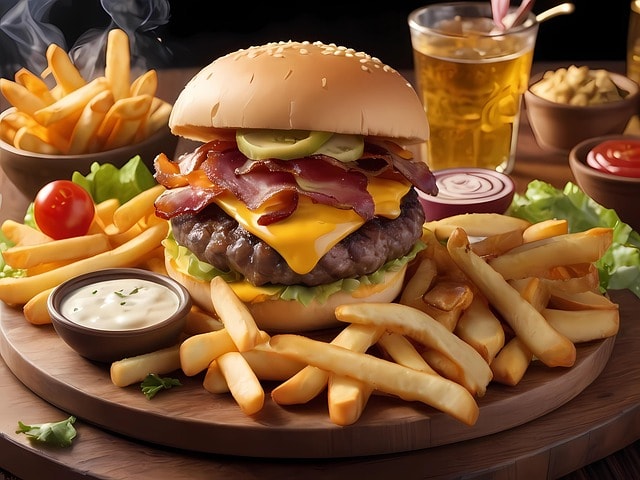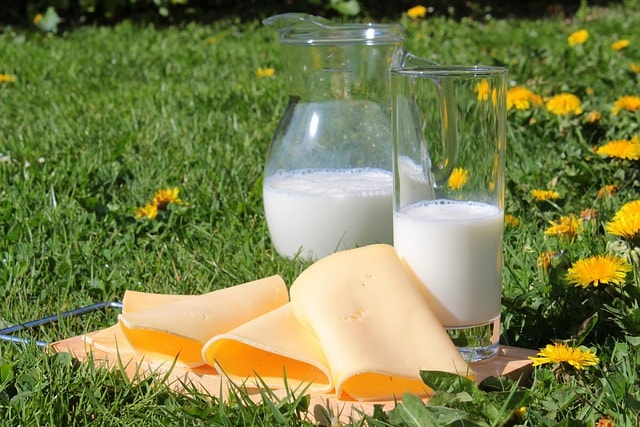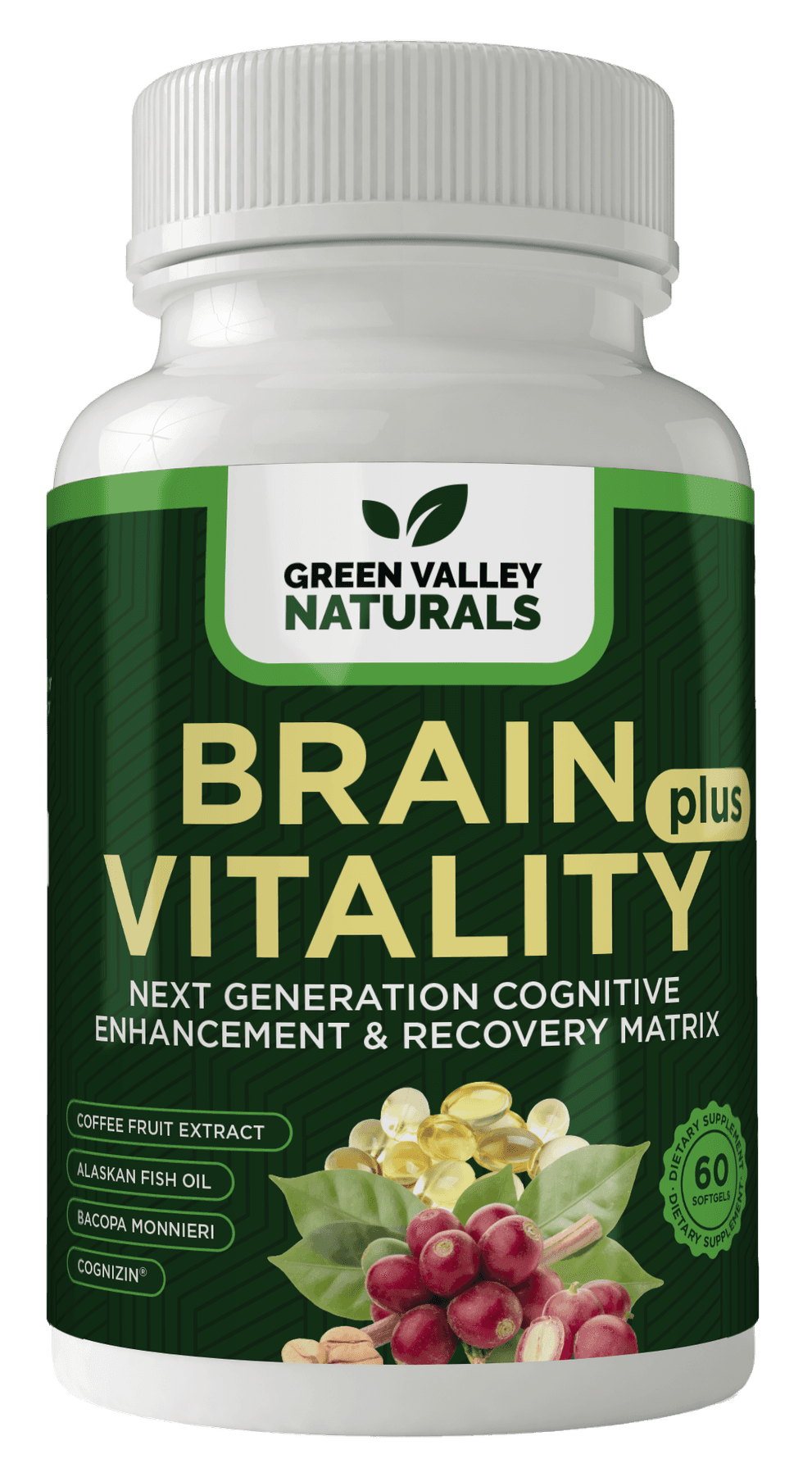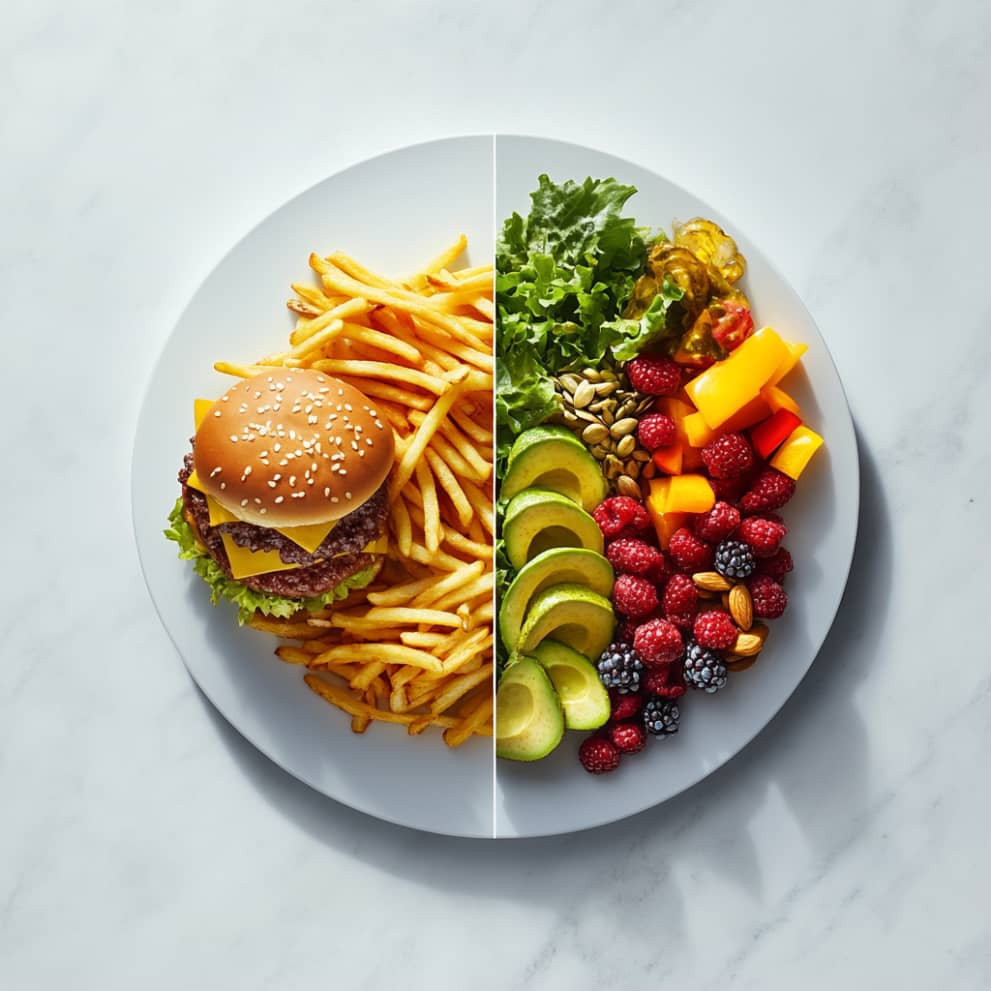
There is a lot of truth to the old adage, "You are what you eat." And this is especially true when it comes to your brain. Brain fog isn’t just about aging or stress. It could be hiding in your breakfast, snack drawer, or even that “healthy” salad dressing. Recent research reveals that 15 common foods may be stealthily sabotaging your brain—clouding your thoughts and speeding up cognitive decline. Keep reading to uncover the everyday foods that could be dulling your mind… and how to clear the mental mist.
Key Takeaways
Certain foods directly impair cognitive function. Refined sugars, artificial sweeteners, trans fats, and processed meats can spike inflammation, reduce brain volume, and increase dementia risk.
Diet-related inflammation contributes to brain fog. Common ingredients like MSG, high-fructose corn syrup, and omega-6 oils are linked to mental fatigue and memory problems.
Food swaps can reverse the damage. Replacing inflammatory foods with brain-boosting choices—like seafood, nuts, and whole grains—can enhance focus, memory, and long-term brain health.
Understanding Brain Fog and Its Causes
Brain fog is a general term describing moments of mental confusion, forgetfulness, and lack of focus. There are many causes of this condition, including inflammation, reduced brain plasticity, age, and underlying disease.
Food also plays a key role in who gets brain fog... and who doesn't.
Certain foods -- mostly high sugar and processed foods -- can negatively affect your brain function, possibly leading you to experiencing brain fog.
The good news is that other foods -- like fish, nuts, and whole grains -- can help prevent this life-changing condition.
Foods That Harm Brain Health

1. Refined Sugar & High-Fructose Corn Syrup
Blood sugar levels play a key role in brain health. Highly processed foods -- like cookies, candies, and snack food -- and sugary drinks can cause your blood sugar to spike and then crash. These crashes can lead to brain fatigue and slower cognition.
Many of these product contain high levels of refined sugar and/or high-fructose corn syrup. Studies have shown a link between consuming a high sugar diet and lower brain volume -- a driving force behind memory loss.1
Other food products also contain high levels of excess sugar and high-fructose corn syrup, including bottled salad dressings, marinades, and condiments.
Consuming these foods can also lead to metabolic syndrome, high blood pressure and other another underlying cause of brain fog.
2. White Bread & Refined Carbs
Refined carbohydrates, found in baked goods, crackers, pasta and white rice can also lead to blood sugar spikes and mental fogginess.
3. Artificial Sweeteners (Aspartame, Sucralose)
Artificial sweeteners may be just as bad for your brain as regular sugar as well. One study linked these fake sugars -- like aspartame and saccharin -- to a higher risk of developing Alzheimer's disease, dementia, and stroke.2
These chemical sweeteners are used in diet soda, sugar-free candies, and diabetic foods.
4. Processed Meats (Deli meat, bacon, sausage):

Processed meats contain chemical preservatives that can interfere can cause brain inflammation, impairing mental clarity. Research shows that eating just two servings of processed red meat weekly can increase your dementia risk by 14 percent.3
These foods include hot dogs, bacon, and lunch meats.
5. Trans Fats / Hydrogenated Oils:
Trans fats occur naturally in dairy and meat products. They are added to many packaged foods like margarine, frosting, snack foods because they can extend the product's shelf life.
Studies show that these unhealthy fats lead to increased risk for weight gain, diabetes, cholesterol issues and memory loss.4
6. Fried Foods
Fried foods often contain trans fats and hydrogenated vegetable oils. These unhealthy fats can cause brain inflammation and other underlying causes of to High in unhealthy fats that impair brain-cell communication.
7. Fast Food
Most fast food products are ultra processed. This means they often contain sugar, refined carbs, processed meats, trans fats, and preservatives. These ingredients are linked to brain inflammation.
8. Dairy

Consuming dairy -- especially for folks who are lactose intolerant -- can lead to cause mental fogginess due to it's casein or lactose content.
Additionally, foods high in saturated fat, such as full-fat cheese, milk, and sour cream can negatively impact cognitive function by increasing inflammation.
9. Gluten
Much like with dairy, people with an intolerance to gluten -- a protein found in wheat products -- can experience increased inflammation and brain fog when consuming these foods.
10. Alcohol

Alcohol dehydrates brain cells, which can interrupt brain signals and lead to memory problems and decreased focus.
11. Energy Drinks & Too Much Caffeine
Coffee, energy drinks, and other caffeinated beverages impact your nervous system and help your body release certain stress hormones. Once these hormones wear off, you can feel a crash that impacts your memory and focus.5
12. Soy
Research shows soy products can affect hormone balance and thyroid function. These are underlying causes of brain fog and mental fatigue. Soy can be hard to avoid as it is frequently used in many processed foods. It's important to check all nutrition labels if you want to avoid soy.6
13. MSG (Monosodium Glutamate)
Animal research finds that high consumption of MSG can lead to brain shrinkage, short term memory loss, and Alzheimer's disease–like symptoms.7
MSG is a chemicals added to many processed foods to make them more flavorful.
14. Additives & Preservatives
Processed foods often contain chemical additives and preservatives, including sodium benzoate and artificial flavors or colors. These toxins can increase brain inflammation and decrease brain function.
15. Foods High in Omega-6 (corn oil, sunflower oil)
This common fatty acid can promote inflammation and cloud thinking when consumed in large amounts. Found in cheaper oils—like corn, sunflower, and cotton seed—this ingredient can be hard to avoid in packaged foods.
Strategies for Improving Brain Health Through Diet
The first step to boosting your brain through diet is to avoid the 15 dangerous foods listed above, especially if you have a sensitivity to any of them.
But there's more you can do to reduce brain fog.
Eating a balanced diet high in fiber and antioxidants—both found in fruits and vegetables—can improve cognitive function and reduce brain fog by lowering inflammation and improving your gut health.
The easiest way to do this is to replace unhealthy processed foods with whole grains, fruits, vegetables, nuts and lean proteins.
Foods That Support Brain Health

Just as a high-performance car needs premium fuel, your brain requires specific nutrients to function at its best. Getting these nutrients can be done through your diet.
Seafood is a good source of Omega-3 fatty acids (especially DHA). This nutrient helps lower inflammation and increase brain cell communication.
B-vitamins and are found in eggs and meat. These vitamins are essential for neurotransmitter production and brain cell health. Eggs are also high in choline, which can improve cognitive function and reduce brain fog.
Healthy fats, such as those found in nuts and seeds, can support brain health and improve cognitive function.
Whole grains, fruits, and vegetables are rich in antioxidants and fiber, which can help protect the brain and promote a strong memory, including options like whole wheat pasta.
Making Sustainable Lifestyle Changes
Sleep habits: Lack of sleep and sleep interrupted by sleep apnea can cause or worsen cognitive issues. A wide range of studies show that when you skimp on sleep, your thinking processes go into low gear. So if you’ve had a long-term issue with insomnia or other sleep issues, you should seek professional help.
Stress: Research shows that an overload of stress interferes with your mental clarity. A review study by researchers in South America indicates that when your body releases stress hormones, they disrupt your ability to remember things clearly and age your brain faster.3
Sitting for long hours every day: A lack of exercise and inactivity can contribute to brain fog. Research shows that moving around more and doing other activities can help your brain function better and lessen mental fogginess.
Summary
Brain fog—a state of forgetfulness, confusion, and mental fatigue—is often linked to inflammation and nutrient deficiencies. Surprisingly, your diet plays a critical role in either fueling or fighting this condition. Many ultra-processed foods, artificial sweeteners, and common additives have been shown to impair brain function. By eliminating the top 15 foods that cause brain fog and embracing nutrient-dense whole foods, you can reduce inflammation, restore mental clarity, and protect your brain as you age.
Frequently Asked Questions
What foods should you avoid if you have brain fog?
Processed foods, dairy, chemical additives, caffeine, soy, sugar, and artificial sweeteners.
What is a quick fix for brain fog?
There's no quick fix for brain fog. But avoiding processed foods and replacing them with whole, healthy foods is a good way to take back your brain, as processed foods are a significant risk factor for cognitive decline.
What am I lacking if I have brain fog?
There are many nutrient deficiencies that can impact brain function. Lacking omega 3 fatty acids, B vitamins, and choline are common in folks with mental fatigue. Check with your physician about getting tested for nutrient deficiencies.
What is the best vitamin for brain fog?
B vitamins are essential for brain health. Check with your doctor before starting any supplements.
-
Pase MP, Himali JJ, Beiser AS, Aparicio HJ, Satizabal CL, Vasan RS, Seshadri S, Jacques PF. Sugar- and Artificially Sweetened Beverages and the Risks of Incident Stroke and Dementia: A Prospective Cohort Study. Stroke. 2017 May;48(5):1139-1146. doi: 10.1161/STROKEAHA.116.016027. PMID: 28428346; PMCID: PMC5405737.
-
https://aaic.alz.org/releases-2024/processed-red-meat-raises-risk-of-dementia.asp
-
Golomb BA, Bui AK. A Fat to Forget: Trans Fat Consumption and Memory. PLoS One. 2015 Jun 17;10(6):e0128129. doi: 10.1371/journal.pone.0128129. PMID: 26083739; PMCID: PMC4470692.
-
Cappelletti S, Piacentino D, Sani G, Aromatario M. Caffeine: cognitive and physical performance enhancer or psychoactive drug? Curr Neuropharmacol. 2015 Jan;13(1):71-88. doi: 10.2174/1570159X13666141210215655. Erratum in: Curr Neuropharmacol. 2015;13(4):554. Daria, Piacentino [corrected to Piacentino, Daria]. PMID: 26074744; PMCID: PMC4462044.
-
Ankul SS, Chandran L, Anuragh S, Kaliappan I, Rushendran R, Vellapandian C. A systematic review of the neuropathology and memory decline induced by monosodium glutamate in the Alzheimer's disease-like animal model. Front Pharmacol. 2023 Oct 24;14:1283440. doi: 10.3389/fphar.2023.1283440. PMID: 37942488; PMCID: PMC10627830.




